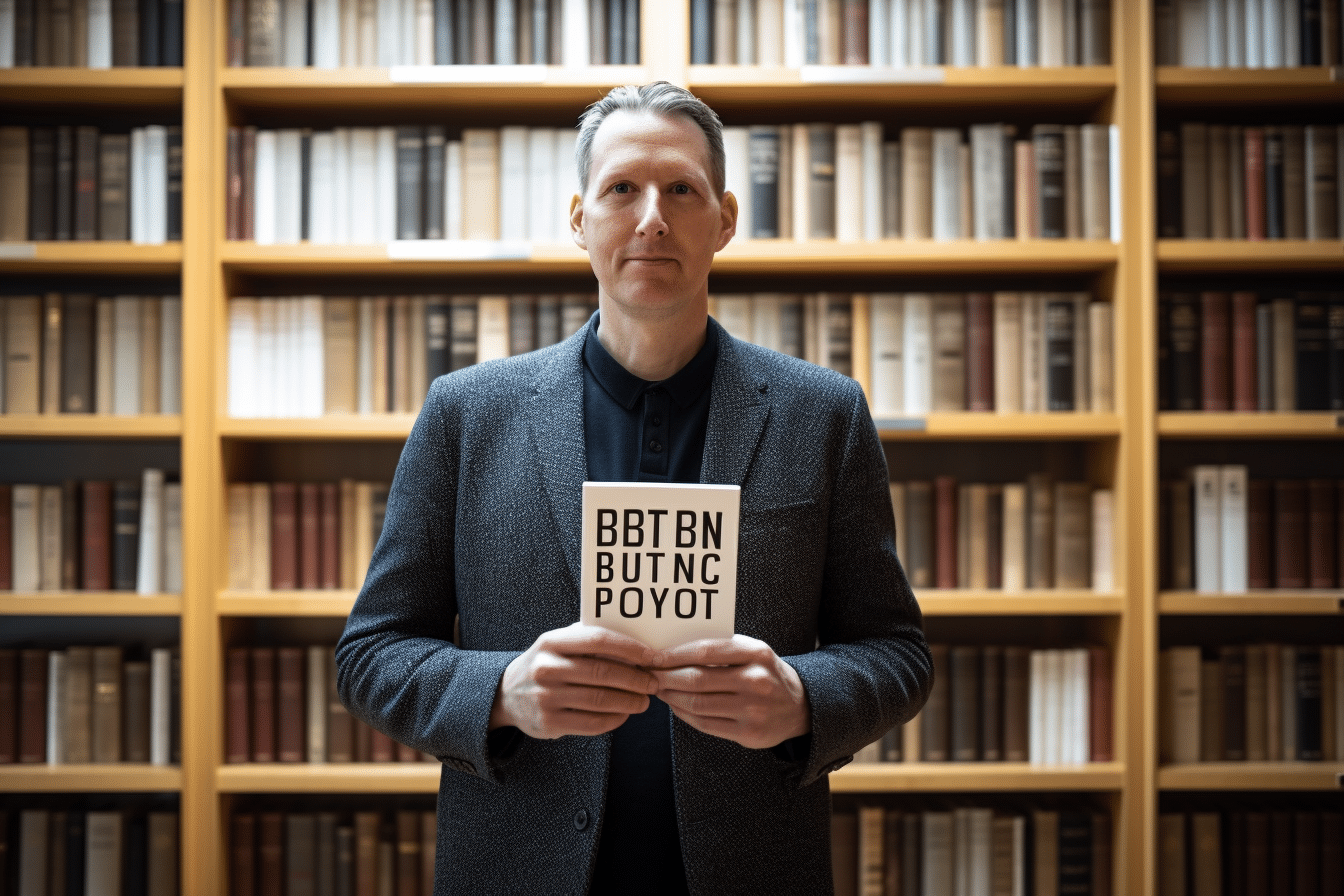
In a unique twist, a British artist, David Shrigley, embarked on a project to transform over 6,000 copies of the bestselling novel, “The Da Vinci Code,” into another iconic work: George Orwell’s “Nineteen Eighty-Four.” This fascinating journey commenced in 2017 when a charity shop in Swansea, Wales, humorously urged the public to halt donations of Dan Brown’s notorious novel. It was this unusual appeal that caught Shrigley’s attention, leading him down an unexpected path that would merge art, literature, and contemporary cultural commentary.
The original idea took root when Shrigley revisited Orwell’s dystopian masterpiece during the 2020 pandemic. The timing coincided with the 70th anniversary of Orwell’s passing, rendering “Nineteen Eighty-Four” available for public reproduction. As a result, “Pulped Fiction,” Shrigley’s interpretative rendition of the classic, was born and exhibited at the thrift store that had sparked the endeavour.
David Shrigley commented on his limited-edition project, noting, “It’s like you’ve entered a totalitarian regime where there is no choice. This is the book, and you’re going to read it.” He saw deeper layers within Orwell’s narrative that spoke to contemporary realities, pointing to the “subversion of language” that resonates today, especially in political discourse. Drawing parallels with Margaret Atwood’s 1985 novel, “The Handmaid’s Tale,” Shrigley emphasized the prophetic nature of such narratives, stating, “War is presented as peace. Enemies are invented for us. We’re invited to think that black is white and white is black. The day is night, and night is day.”
Shrigley’s project is more than a juxtaposition of two contrasting novels. It stands as a commentary on the enduring relevance of Orwell’s vision and the transient nature of popular fiction. “The Da Vinci Code,” described by the artist, is “a holiday book about a fairly benign conspiracy.” However, he maintained the importance of “Nineteen Eighty-Four” in today’s society, emphasizing its timeless resonance.
In collaboration with his studio and graphic designer Fraser Muggeridge, whose grandfather intriguingly proofread Orwell’s original text, Shrigley invested significantly in this project. Despite the considerable costs and uncertainties about financial returns, the artist’s primary interest is the ensuing conversation around the work, emphasizing that “It’s the conversations that you have which further its progress.”
David Shrigley’s “Pulped Fiction” project is a testament to the enduring impact of literature and its ability to inspire artists and thinkers across generations. By juxtaposing two very different novels, Shrigley invites us to reflect on the nature of storytelling, the changing face of cultural relevance, and the deeper truths that literature can unveil about our society.
